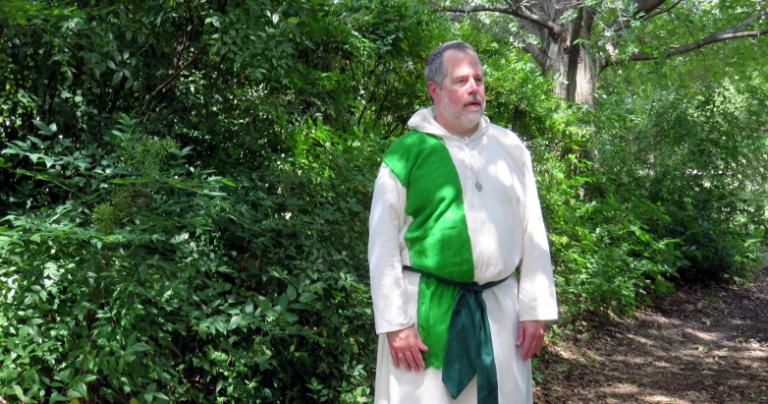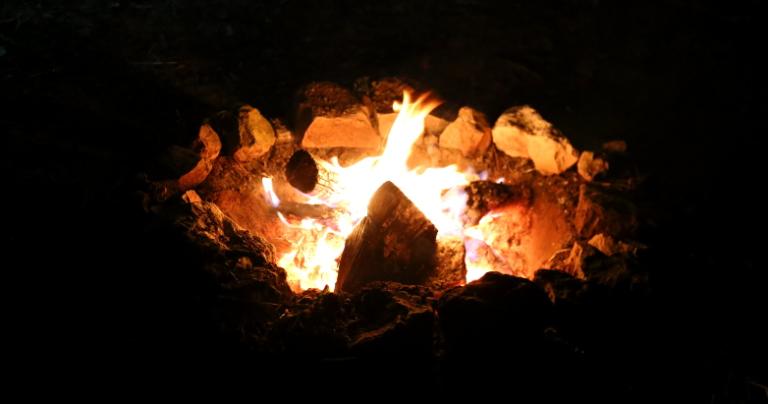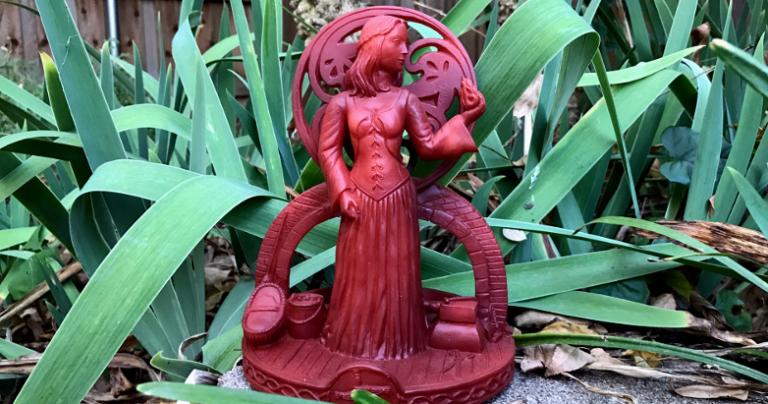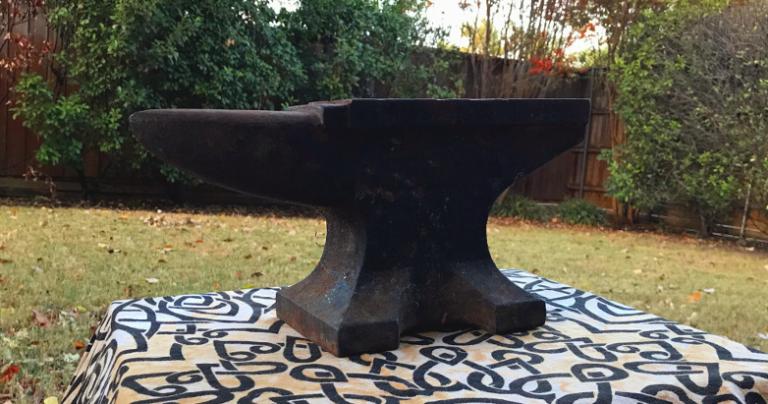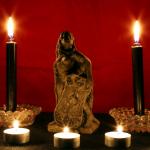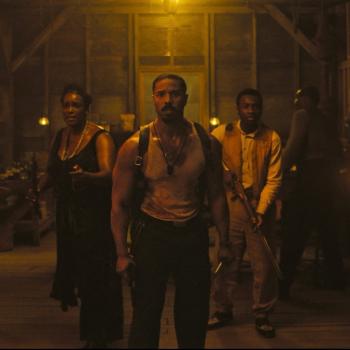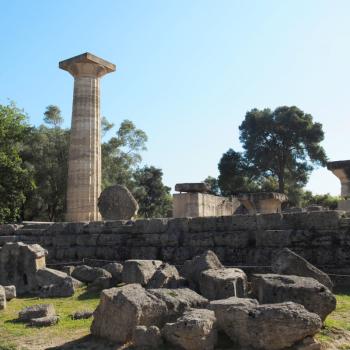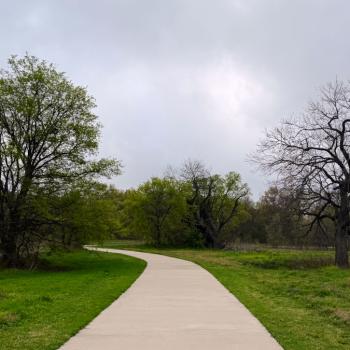This post has been sitting in the “to be written” pile for three months. In October I concluded It Ain’t Necessarily So: Five Falsehoods in the Pagan Community with a reminder that while you do not need a priest to mediate your every experience of the divine, there are some situations where you need the assistance of someone with the skills and training of a priest. I’ve been meaning to write about those situations ever since.
Last Wednesday, Terence Ward of The Wild Hunt compiled a very good list of recommendations from Pagan priests on the topic of The limits of ministry: Pagan clergy and serious situations. I recommend you read the whole thing, particularly if you consider yourself a priest, or if you ever consult a priest.
These are the things I can do for you in my role as a priest, and the things I can’t.
I can listen. I can’t provide mental health care.
Need somebody to listen to your challenging life situation? I’ve been doing that since I was a child. I can listen and I can ask questions that may help you change the way you see your circumstances. I can tell you what’s worked for me in similar situations, and what hasn’t. I can point you toward resources that may be helpful to you. If you have a religious, spiritual, or magical problem, I can propose a religious, spiritual, or magical approach to deal with it.
But I’m a Druid and a priest, not a psychologist – I can’t provide mental health care. I can’t diagnose depression and I can’t treat it. I certainly can’t treat more complicated mental health conditions. I can listen to you and if your situation exceeds my skills and training I can refer you to a mental health professional, but I can’t substitute for one.
I also can’t provide counseling on an on-going basis. If you need my counsel more than a couple times, you almost certainly need a mental health professional. I can provide spiritual direction on an on-going basis, but only if what I can offer is a good fit for you.
I can facilitate a religious experience. I can’t guarantee you’ll have one.
I’ve studied ritual all my life. I understand the preparations that go into a good one: finding an appropriate site, picking the right day and time, and making sure we have the right stuff in the right places. I pay particular attention to the necessary spiritual preparations: prayers and offerings to the Gods and spirits, meditations and divinations to make sure we’re all on the same page (sometimes literally, if you ever look at one of my ritual scripts). I’m not very charismatic, but I’ve developed some ritual presentation skills over the years, and I know how to put the right people in the right roles.
It’s not just me – any skilled ritualist can do these things. But while we can create the conditions conducive to the first-hand experience of a God or spirit, we cannot guarantee they’ll show up. And if they do, we cannot guarantee you’ll see or hear or feel them.
If you aren’t open to Otherworldly experiences, you’re probably not going to recognize them even if they happen right in front of your face – you’ll rationalize them away. If you’re looking for something out of a movie, you’re going to be disappointed. And even if you’ve done everything right, the Gods and spirits are individuals with their own autonomy – they do what they do for their own reasons, not because we command them.
Most people who come into a ritual in the right frame of mind (and many who don’t) do experience something. But I can’t guarantee it. Your spiritual life is ultimately your responsibility.
I can provide context for your religious experiences. I can’t tell you how to interpret them.
If you come to a Cernunnos devotional ritual and you have a powerful but indefinite experience of wildness and Nature, I can be fairly confident that was, in fact, Cernunnos. But if you have a series of dreams about a nameless Goddess who’s speaking to you in general terms, I’m not going to be able to tell you “this was Brighid” or “this was Hecate” or this was anyone else.
I can recommend stories to read that will help you understand how Gods and heroes were seen in ancient times, and that will help you learn a bit about who they are. There are lots of good books available from contemporary practitioners, ranging from general introductions to deep academic works to devotional anthologies. There are priests and devotees who are happy to talk about their experiences and relationships so you can see what’s possible.
I can also point you toward possible mundane interpretations. Sometimes what seems Otherworldly has a perfectly ordinary explanation. Not always, but sometimes. The truth matters, even when it’s disappointing.
But religious experiences are innately personal. Only you know exactly what you saw, heard, smelled, tasted, and felt. And while certain deities are more active than others, sometimes Someone who hasn’t been heard from in centuries pops in and wants to talk. You have to do the prayers, offerings, meditation – and the mundane research – to figure out exactly who or what you encountered, and how you should respond to your experience. I can’t do that for you.
I can teach you the spiritual practices I know. I can’t do the work for you.
Teaching Pagan and polytheist religious practice is a big part of what I do on the blog and in my book. I can teach prayer and meditation, offerings and devotion, following the sun and the moon, and many other spiritual practices. I can help you get started. I can provide resources for interpreting your results, I can be a sounding board for your ideas, and I can help you learn to be accountable for following through with what you said you were going to do.
But either you do the work or you don’t. No amount of in-depth conversation about meditation can substitute for sitting quietly (in mindfulness or in contemplation) day in and day out, month in and month out. I’ve written what people tell me is a very good book on Pagan practice, but I can’t read it for you – and I can’t do the rituals and exercises for you either.
Whether you’re talking about mundane skills or spiritual practices, there is simply no substitute for doing the work yourself.
I can introduce you to a God. I can’t tell you which God you should worship.
Proselytizing is evil. Promoting your religion is good and necessary. If you don’t understand the difference, read this post from 2014.
I talk a lot about Cernunnos and the Morrigan. I talk a little less about Danu, Brighid, Lugh, and the Gods of Egypt. I occasionally mention other deities with whom I’m acquainted. I’ve had good and even life-changing experiences with these Gods, and I love talking about Them. Some of Them have specifically tasked me with telling Their stories so others can learn more about Them.
But I can’t tell you “you should worship Cernunnos!” Maybe you should. But that’s the thing about polytheism: different Gods call different people to worship Them in different ways. Perhaps you aren’t open to the call of a primal Forest God. Perhaps the Forest God isn’t interested in you. Perhaps one of the Olympians wants you, or one of the Norse deities. This is among the most deeply personal decisions in the realm of polytheism – nobody can make this decision for you.
I can tell you how to pursue the Gods. But I can’t tell you which God you should pursue.
I can take you up the mountain. I can’t promise if you’ll return mad, dead, or a poet… or if you’ll return unchanged.
There is perhaps no area of priestly work as misunderstood than that of initiation. In many traditions initiation is an expectation. In some it’s a requirement. Initiation carries the anticipation of sudden access to secrets and power. That anticipation makes the process ripe for exploitation and abuse – and for disappointment.
I wrote a fairly detailed post on the risks of initiation last August. If you didn’t see it then, go read it now. Here’s a key quote:
An ordeal strong enough to give the candidate fire in the head can also leave them mad or dead. Again, I’m not speaking metaphorically, or even psychologically. The specter of James Arthur Ray – the New Age guru who killed three people in a botched sweat lodge ceremony – hangs over every ordeal we plan and facilitate.
I’ve planned and led some amazing initiations of some amazing people in my years as a priest and Pagan leader. I’ve also facilitated one that didn’t take. Part of that was my fault (I didn’t make it strong enough), but much of it was the candidate, who simply wasn’t ready for the transformation of initiation.
Some initiations aren’t about transformation. They’re about the recognition of a status already gained. Some of mine have been about making a statement or crossing a line, such as swearing an oath to the Morrigan.
But many candidates want and expect (and at some level, need) spiritual transformation. While making an initiation more dangerous doesn’t automatically make it more meaningful, unless there is some danger involved (at the least, the risk of failure) there is little opportunity for transformation.
As with religious experiences, initiations can be facilitated but they cannot be commanded.
This isn’t all my priestly work.
This is what I can do for you as a priest, and what I can’t. But I don’t want to leave anyone with the idea that these things are all that’s involved with my priesthood.
First and foremost, I serve the Gods to whom I am sworn. I pray to Them, listen for Their presence, honor Them with offerings and sacrifices, and tell Their stories to others.
I act as a mediator for the Gods. Occasionally that means “tell that person I said to do this.” Those messages are not fun to deliver. Thankfully, my job is to deliver the message, not to check up on the person and make sure they actually did it. More frequently it means writing and speaking about themes and virtues that the Gods I serve think are important: reclaiming and respecting sovereignty, caring for Nature, and living well in difficult times.
I serve my communities. Part of that is the pastoral care I described above. Part is being a teacher, an organizer, and an exemplar – I do my best to model the behaviors and lifestyles I advocate.
And I do whatever else needs to be done – including occasionally working 12 hour days to create and facilitate public rituals.
Being a priest doesn’t make me better than other Pagans and polytheists. There are many roles that need to be filled in our religious communities – priesthood is only one them. Being a priest doesn’t mean I have all the authority, and it certainly doesn’t mean I have all the answers.
As a priest there are some things I can do.
And other things I can’t.


